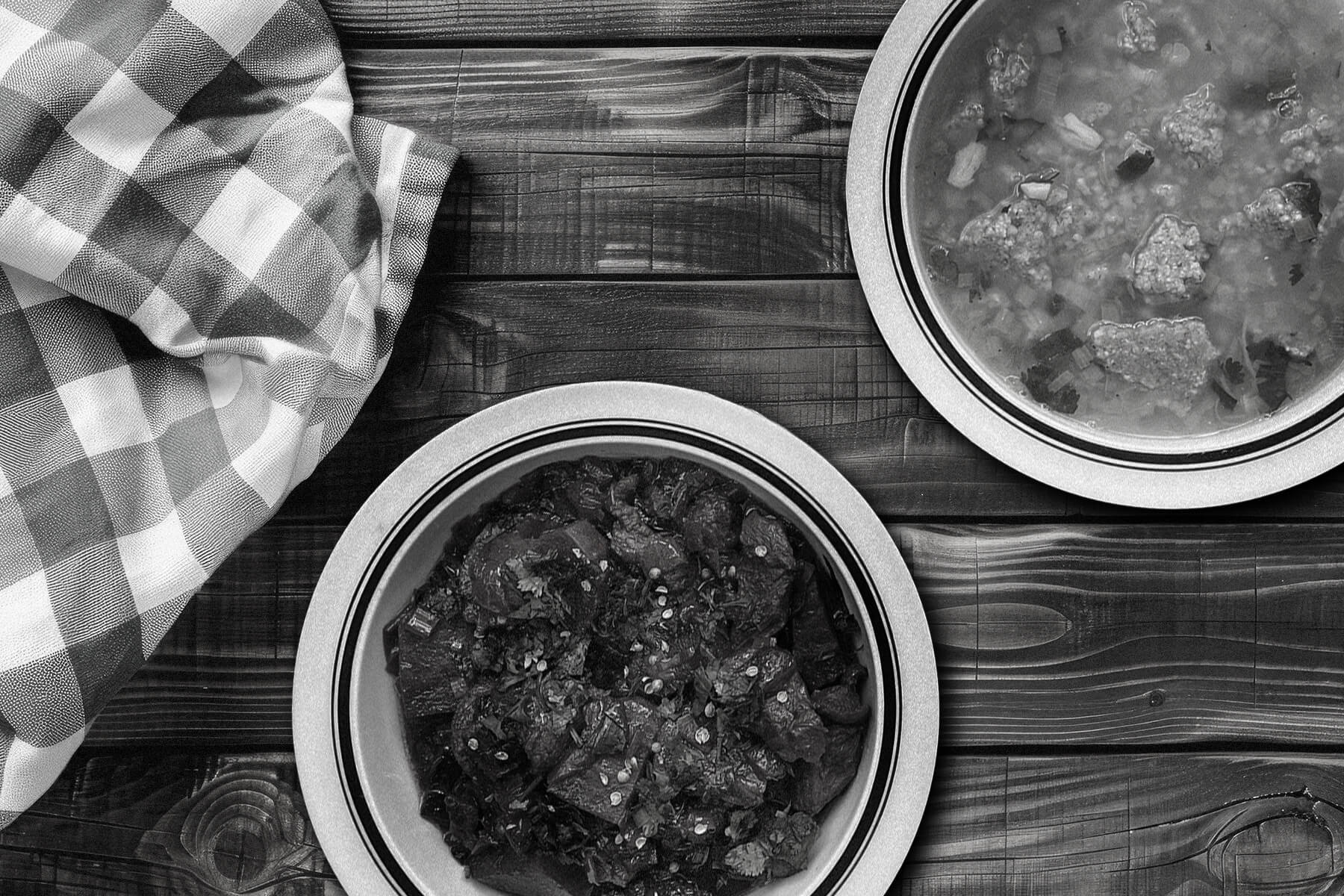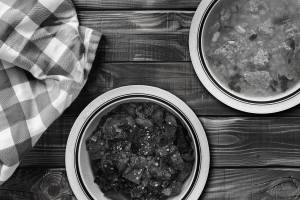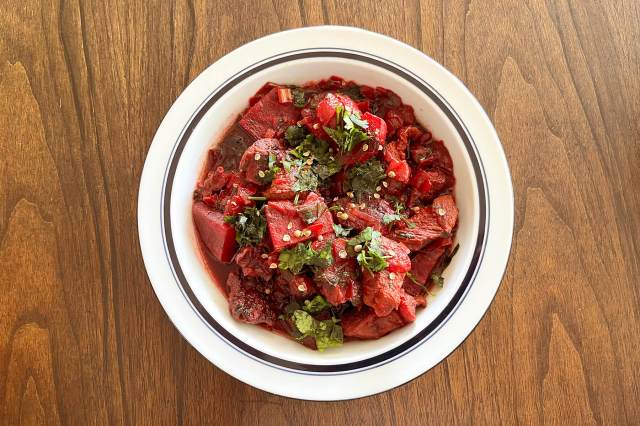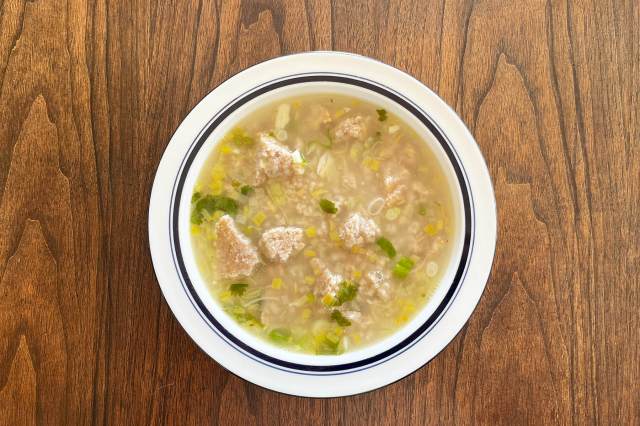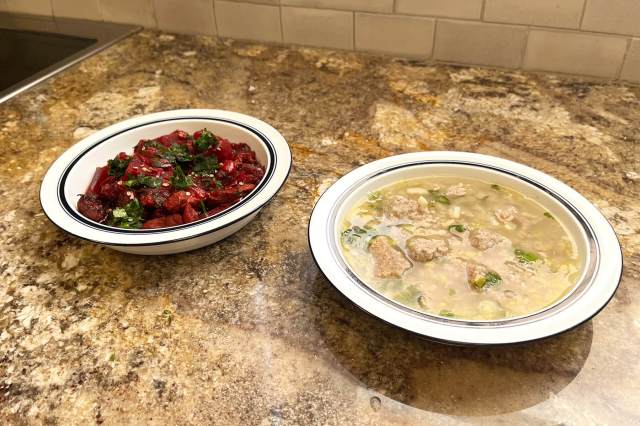We Cooked the World’s Oldest Written Recipes
The ancient Babylonians, who lived in modern-day Iran, Iraq, Turkey, and Syria as far back as the early second millennium BCE, were among the earliest human civilizations. They pioneered such concepts as written language, legal justice, and mathematics, and the culinary arts are no exception: The world’s earliest written recipes survive today in the form of ancient Babylonian tablets dating to around 1730 BCE. The tablets were unearthed in the 1920s, but were initially thought to be medical texts. It wasn’t until the 1980s that researchers finally deduced that the artifacts actually comprised an early cookbook — in fact, it’s considered to be the oldest surviving cookbook in the world.
I was curious to see how these early recipes tasted — especially compared to contemporary dishes — so I set out to recreate a couple of them and try them myself. One of the three tablets contains a summary of 25 recipes for various stews and broths, while the other two describe those recipes in more detail. But the tablets still lack critical specifics, such as exact ingredient amounts and cooking times. The translation for one recipe, for instance, simply says, “Meat is not used. You prepare water. You add fat…” and so on, which would have been hard to replicate. Luckily, a team at Yale University used the information on the tablets, along with their scholarly knowledge of ancient Babylon, to compile several modern recipes that are considered accurate interpretations of those ancient meals.
Using their findings, I prepared two of the recipes at home: a lamb and beet stew, and a vegetarian broth whose name has been translated as “unwinding.” (Though it’s unclear why it’s called “unwinding,” experts suggest it could have been a dish people ate to relax.) Despite the ancient nature of these recipes, it wasn’t difficult to compile the ingredients, or at the very least suitable substitutes.
Lamb and Beet Stew
The primary dish I made was a lamb stew. Lambs were among several animals that were domesticated in ancient Mesopotamia, and were a key component of cuisine in the region. Mesopotamia was also an agricultural hot spot that came to be known as the Fertile Crescent — referring to the area’s rich, fertile soil — so it comes as little surprise that the lamb stew contained plenty of fresh veggies as well.
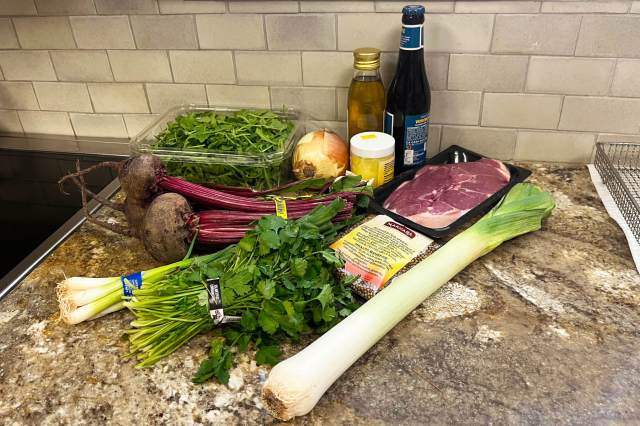
- Ingredients
- 1 pound diced lamb leg
- ½ cup rendered fat (we used cow fat instead of sheep fat)
- ½ teaspoon salt
- 1 cup beer
- ½ cup water
- 1 small chopped onion
- 1 cup chopped arugula
- 1 cup spring onions
- ½ cup cilantro
- 1 teaspoon cumin
- 1 pound diced red beets
- ½ cup chopped leek
- 2 cloves garlic
- Coriander seed, cilantro, and kurrat (we used spring onion) for garnish
For this dish, I had to make a few minor adjustments given the ingredients I had available. The recipe as written called for an Egyptian leek called kurrat, which is known for having a mild onion and garlicky flavor. Given the similar flavor profile, spring onions are a suitable alternative, so I used those instead.
The dish also calls for beer, which was a major component of Babylonian culture. It was difficult, of course, to find a beer that would have been exactly like the ones drunk by the ancient Babylonians, but I looked for an option that was as close as possible. Most of the beer recipes archaeologists have uncovered from ancient Babylon are made with barley. Tate Paulette, the author of In the Land of Ninkasi: A History of Beer in Ancient Mesopotamia, writes that “there’s no evidence for the use of hops” in Babylonian beer, unlike in modern beers. He also notes that early beers often included “date syrup, and additional flavorings,” giving them a sweetness. Brew Your Own magazine, meanwhile, points out that many ancient beers were sour in nature. Taking all this into account, I selected a fruity and sour ale to roughly replicate the taste profile of Babylonian beer.
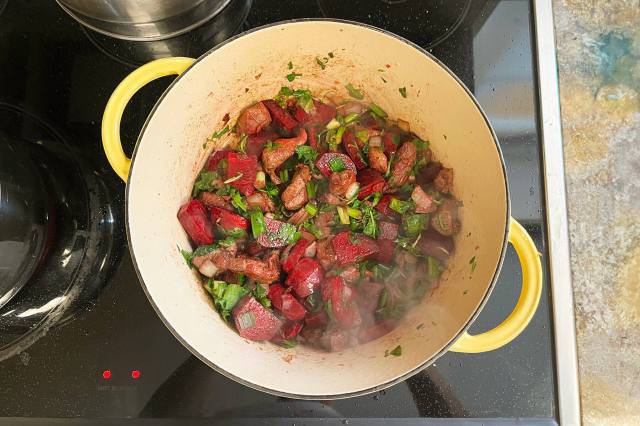
The cooking process for this dish was rather simple, and not unlike how you’d prepare any modern stew. The major difference was how heat was applied — while cooks in ancient Babylon would’ve used an open flame, I used an electric stovetop.





